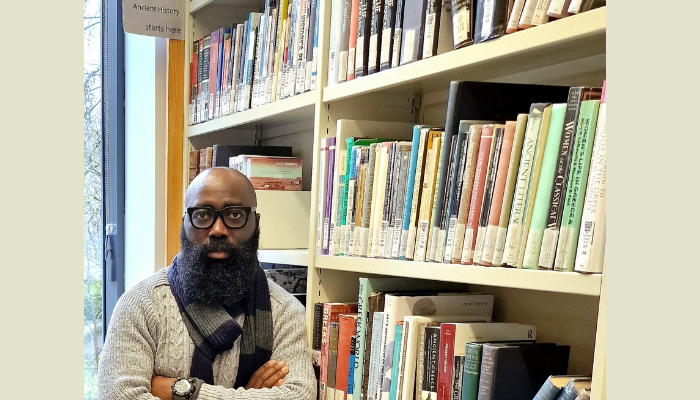In a triumph that resonates with the aspirations and dreams of countless individuals, Nigerian architect Stephen Ajadi has captured the hearts and minds of the academic world by clinching the coveted CSAR PhD prize at the renowned University of Cambridge. His study was chosen for stellar research excellence as well as its high propensity for true and significant real-world impact.
From humble beginnings in Nigeria, where he sketched architectural wonders on the back of old textbooks, to the grand halls of one of the world’s most prestigious universities, Ajadi’s journey exemplifies the transformative power of education and the unwavering pursuit of excellence one destined to leave an indelible mark on the architectural landscape and the lives of countless communities.
His groundbreaking research in conflict studies, which involved deep ethnographic studies in Northern Nigeria and physical interviews with over 7000 people, has earned him this coveted award. Notably, he is the first doctoral scholar from the university’s Department of Land Economy to receive this recognition.
Ajadi’s research focused on vulnerability to conflict and violence in informal spaces of the Sahel region, offering innovative ideas to protect formal and informal areas in West African cities. As Africa experiences rapid urbanization, his work gains significant importance in creating safer and more sustainable cities across the continent.

His pursuit of a Ph.D. in land economy amalgamates his previous formal degrees and expertise in architecture, design, sustainability, management, and economics, all of which he excelled in with distinctions. This diverse educational background has enabled him to approach the research of his fifth degree from multiple viewpoints and theories simultaneously.
Stephen Ajadi is also the founding president of the Cambridge Initiative for African Urbanism (CIAU) and the Penumbra Space NGO in Nigeria.
According to the statement, Ajadi has raised about £150,000 in finance and land value for building physical infrastructure to reduce conflict displacement and religious extremism, to training communities and market spaces on conflict-resilient social practices.

He designed and is building a number of religious centers with education spaces to promote non-violent religious life. His Mosque-School typology projects at Ikorodu, Maiduguri, and Abuja are developing schemes he is delivering pro-bono through his foundation. His dedication to promoting urban resilience and real-world impact also continues through his architecture firm RUBAN, which operates in four cities across Nigeria and Uganda.
His architectural and urban design plans consistently challenge established stereotypes, showcasing a diverse portfolio of projects, from small rural interventions for low-income populations in sub-Saharan suburbs to high-rise and large-scale buildings in the most urbanized parts of Africa. Some of his ongoing projects include the master plan of the Lagoon waterfront at the University of Lagos (a pro-bono contribution to the University), as well as larger budget multi-scale buildings in Banana Island, Eko Atlantic City, and Abuja.

Recognizing his potential to shape the future of urban development in Africa, the Cambridge Society for the Application of Research (CSAR) supports his future studies. With his expertise and passion for addressing real-world challenges, Stephen Ajadi is becoming a prominent figure in the field of the built environment, earning acclaim from academia and industry alike.

He has also stated that he intends to start playing more roles in state policy regarding urban development and security.
READ ALSO: Four killed, five injured as Zaria Central Mosque collapses
Source: https://businessday.ng/




